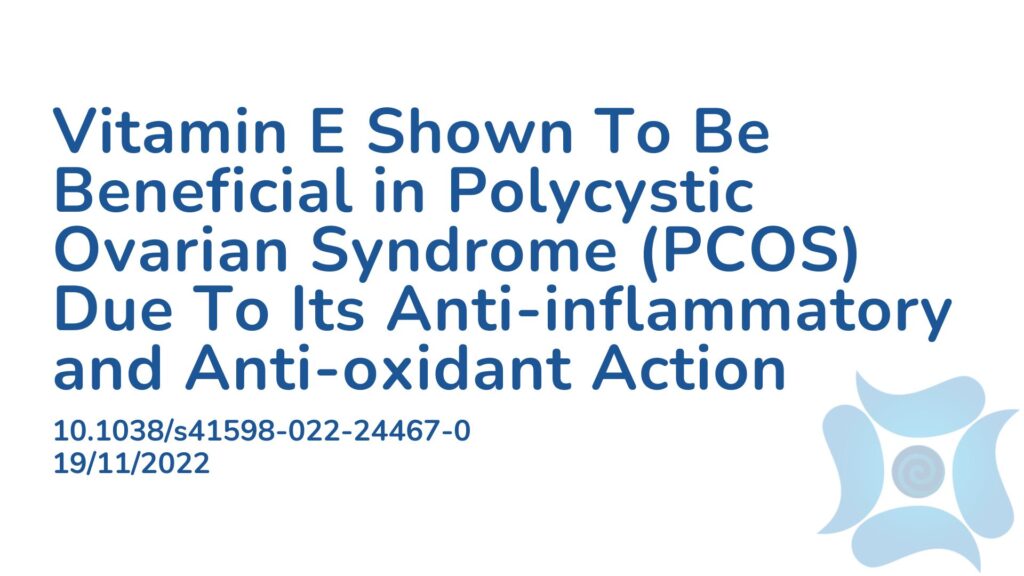Summary:
Polycystic ovarian syndrome (PCOS) is a common condition of the endocrine system estimated to impact up to 25% of women of reproductive age. PCOS is characterized by intense menstrual pain, menstrual and ovulatory dysfunction and poor fertility. The cause of PCOS is unknown but lifestyle changes and nutritional interventions have shown to be successful treatments for those suffering from PCOS, such as an anti-inflammatory diet. Recently, there has been attention on the role of vitamin E in PCOS, due to its anti-inflammatory, anti-oxidant and glycaemic control properties. The purpose of this paper was to conduct a systematic review on randomized clinical trials that evaluate the role of vitamin E supplementation in patients with PCOS, as well as vitamin E alongside omega-3 fatty acids or magnesium. 10 randomized-controlled trials, including 504 participants, were included in the review. The results showed that vitamin E supplementation alone or in combination with omega-3 fatty acids or magnesium could significantly reduce weight, oxidative stress and symptoms associated with PCOS. This research highlights the importance of ensuring the anti-inflammatory and anti-oxidant benefits of vitamin E are utilised amongst PCOS patients.
Abstract:
Vitamin E supplementation might have favorable effects on risk factors of polycystic ovary syndrome (PCOS). This systematic review and meta-analysis aimed to summarize the effects of vitamin E supplementation or vitamin E in combination with omega-3 or magnesium on PCOS. PubMed, Scopus, ISI Web of Science, Cochrane, Embase electronic databases, and Google scholar were searched for all available articles up to September 2022. Randomized controlled trials (RCTs) that examined the effect of vitamin E supplementation or vitamin E in combination with omega-3 or magnesium on lipid and glycemic profiles, anthropometric measurements, biomarkers of inflammation and oxidative stress, hormonal profile, and hirsutism score in patients with PCOS were included. Ten RCTs (with 504 participants) fulfilled the eligible criteria. Vitamin E supplementation or vitamin E in combination with omega-3 or magnesium in comparison to placebo could significantly reduce serum levels of TG (weighted mean difference: − 18.27 mg/dL, 95% CI − 34.68 to − 1.87), VLDL (− 5.88 mg/dL, 95% CI − 8.08 to − 3.68), LDL-c (− 12.84 mg/dL, 95% CI − 22.15 to − 3.52), TC (− 16.30 mg/dL, 95% CI − 29.74 to − 2.86), TC/HDL-c ratio (− 0.52, 95% CI − 0.87 to − 0.18), hs-CRP (− 0.60 ng/mL, 95% CI − 0.77 to − 0.44), hirsutism score (− 0.33, 95% CI − 0.65 to − 0.02) and significantly increase nitric oxide levels (2.79 µmol/L, 95% CI 0.79–4.79). No significant effect was found on HDL-c, glycemic indices, hormonal profile, anthropometric measurements, and other biomarkers of inflammation or oxidative stress. This meta-analysis highlights the potential anti-hyperlipidemic, anti-oxidant, and anti-inflammatory properties of vitamin E supplementation alone or in combination with omega-3 or magnesium on PCOS patients.
Article Publication Date: 19/11/2022
DOI: 10.1038/s41598-022-24467-0



